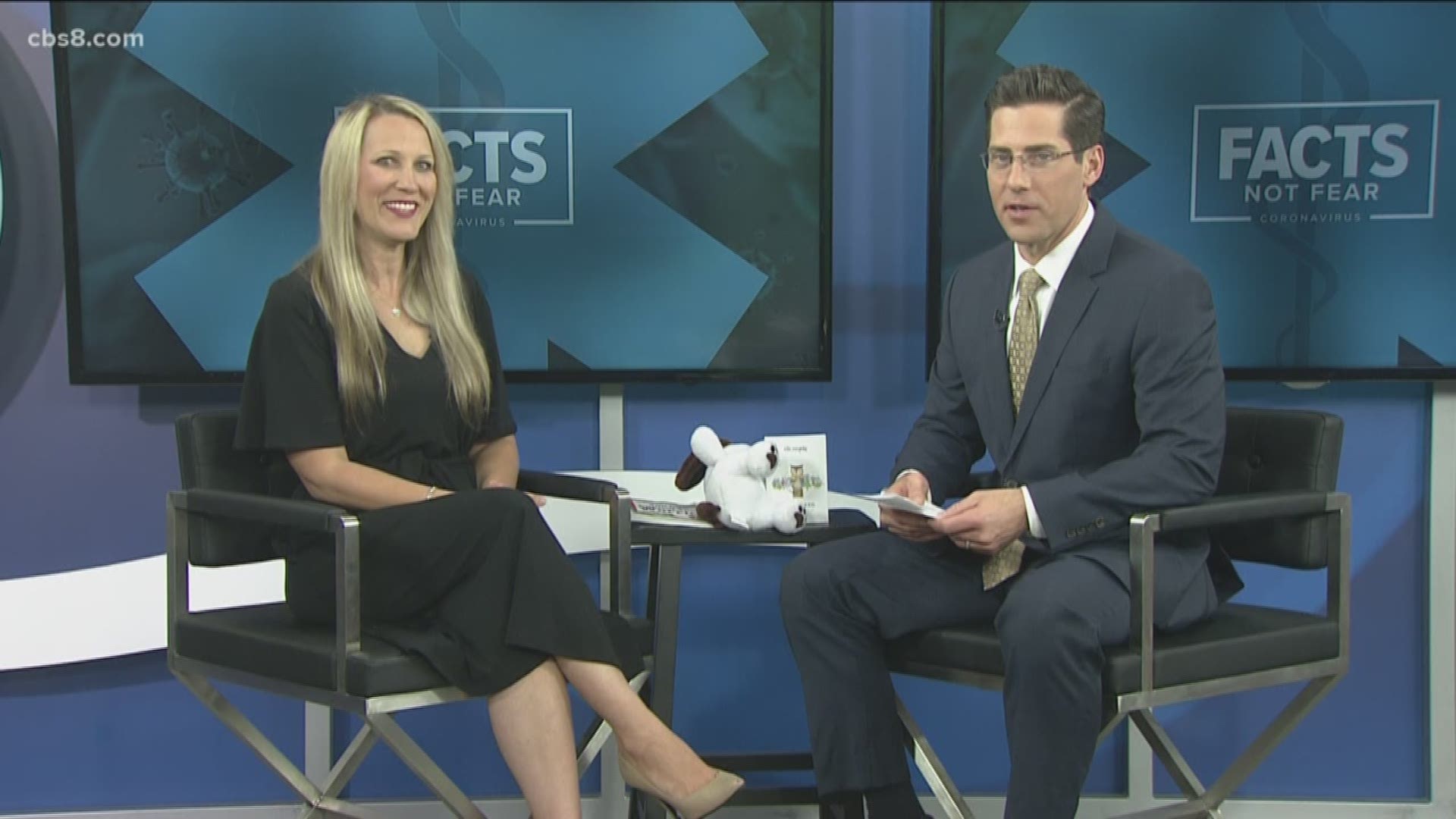SAN DIEGO — These days it is virtually impossible to go more than a few hours without hearing someone talk about the coronavirus. This can be very scary for children who really don’t understand what is going on.
The Parentologist, Dr. Kim van Dusen, stopped by to talk about age-appropriate ways of explaining the coronavirus to your children.
She gave these tips to help:
- Anxiety is cultivated by ambiguity. Know your facts before sharing them and your fears with your children
- Educate yourself so you can educate your children
- Stress lowers your immunity, so the higher your stress hormone (cortisol) the more you may be at risk for illness, so stressing is counterproductive
- Expose your children to only what they can cognitively handle at their particular age
- Only tell them/show them what they need to know: don't be constantly searching for updates, take breaks and live life with as much normalcy as possible
- Empower them to come up with an emergency plan and kit for any type of emergency like a fire, earthquake, power outage, quarantine, etc. Make sure there are items like a flashlight, bandages, water, blanket, etc so they feel prepared just in case - this can help lessen anxiety because they are being proactive in the solution to the problem
- Be calm and if you let your anxiety rise out of control, most likely, you will instill fear in your children as well. Children learn emotions and how to handle them through us, their parents, so even though it's healthy to show them we are human and it is ok to be appropriately emotional, but it's a fine line. We also need to show them resilience, strength, bravery, and calmness in a heightened situation (ie: it is ok to be sad and cry but we wouldn't throw ourselves on the floor and stay there all day kicking and screaming or it's ok to be scared but we aren't locking ourselves in our bedrooms or screaming "we are all going to die" in the middle of the street.
- If your child expresses a fear, listen to them, validate them, and give them coping skills to help maintain fears and concerns. Teach them what they can do to be proactive and how to be safe - wash their hands, avoid touching their eyes, nose, mouth, and ears, use anti-bacterial spray, not share drinks, cover their mouth when they cough, wear a etc.
- Anxiety in children: Fear = Anger, Sadness, Irritability, physiological symptoms including headaches, stomach aches, separation anxiety, insomnia, trouble sleeping, trouble eating, inability to focus or sit still, hypervigilance, constantly picking at skin, nails, or hair

